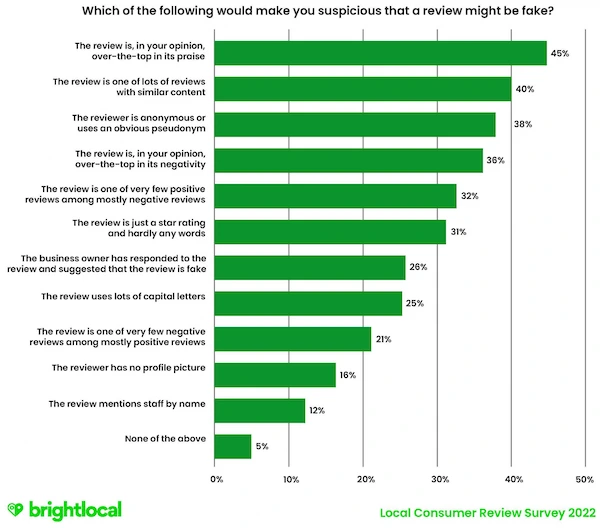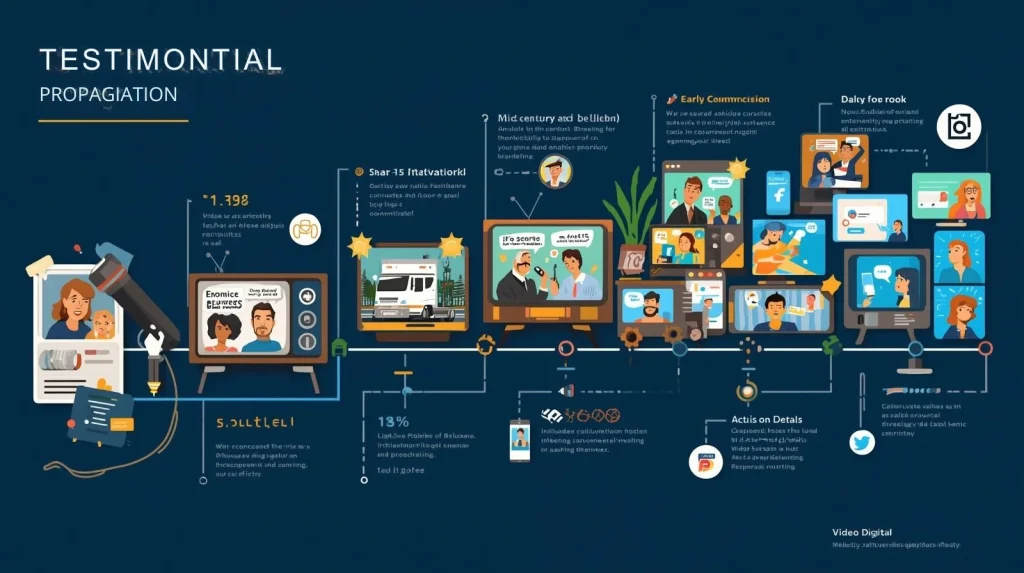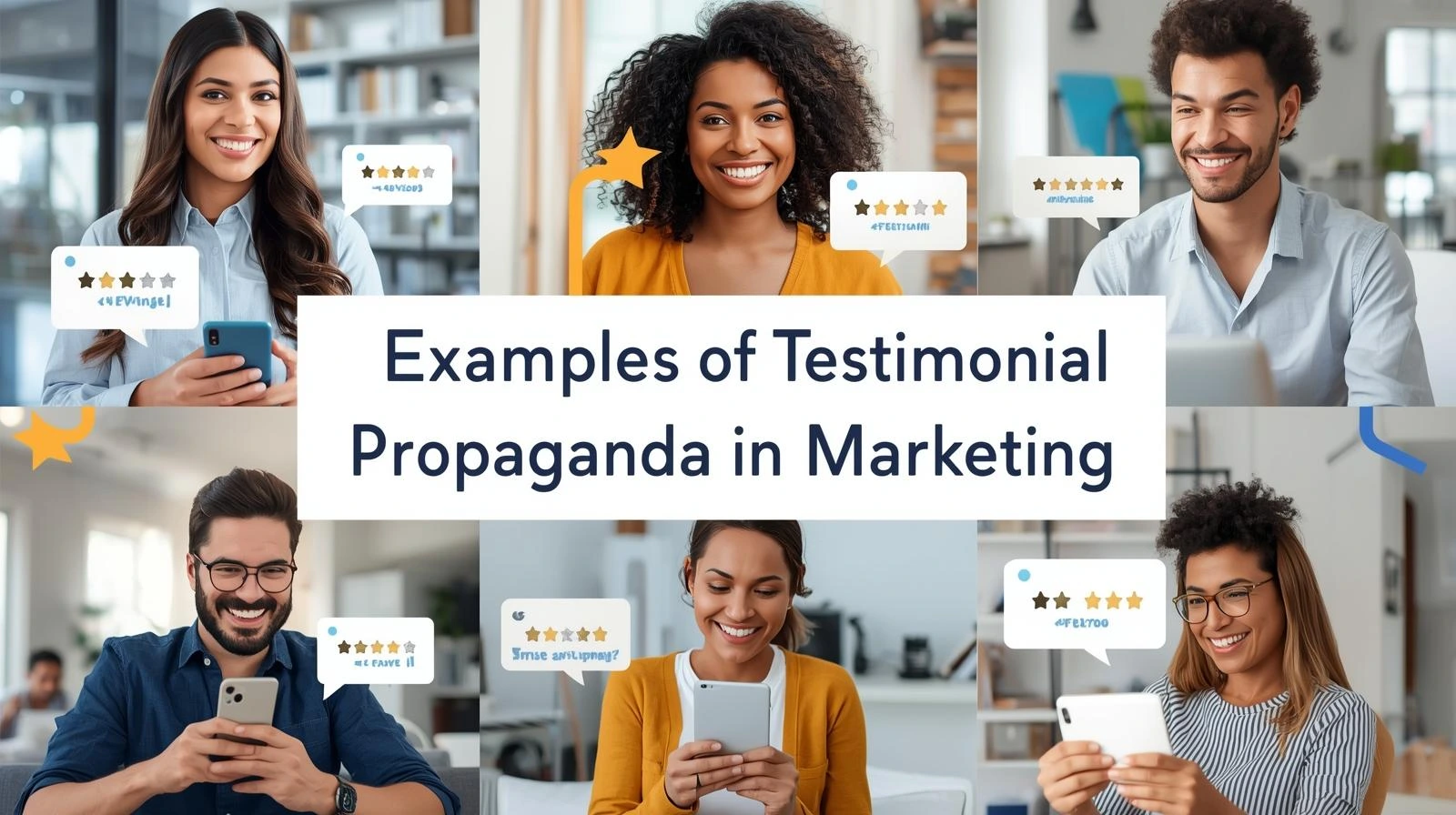In today’s competitive marketing landscape, not all testimonials are created equal. Some work subtly, almost like propaganda, shaping perceptions, influencing decisions, and guiding customer behavior. This isn’t about deception—it’s about strategically leveraging testimonials to increase trust, demonstrate authority, and boost conversions.
In this article, we’ll explore real-world examples of testimonial propaganda in marketing, why it works, and how SMBs can ethically use it to maximize impact. For a broader view on reputation and testimonial strategies, see our pillar post: Online Reputation Management & Testimonial Marketing for Local SMBs.
Why Testimonial Advertising?
Testimonial advertising is one of the most effective strategies marketers can use to influence consumer behavior. Unlike traditional advertising, which focuses on brand claims and features, testimonial advertising leverages real people, credible figures, or satisfied customers to convey trust, authenticity, and relatability. This approach taps into the psychology of human decision-making, where peer opinions and expert endorsements carry more weight than generic brand messages.
One of the primary reasons testimonial advertising works is social proof. Consumers are more likely to try a product or service if they see that others—especially those similar to them—have had positive experiences. For instance, a small business highlighting customer success stories or displaying high-volume positive reviews can dramatically increase trust and reduce hesitation at the point of purchase.

Another key factor is emotional appeal. Testimonials often narrate personal experiences, challenges, or transformations, allowing potential customers to emotionally connect with the story. Emotional engagement encourages stronger recall and motivates action, which is especially effective in competitive markets.
Authority and credibility are also critical. Endorsements from experts, influencers, or recognized figures signal reliability, making consumers more likely to believe claims and follow recommendations.
In addition, testimonial advertising can enhance conversion optimization (CRO). Well-placed testimonials on landing pages, product pages, or email campaigns serve as trust signals that reduce friction and boost conversion rates.
In 2025, with digital marketing saturated with traditional ads, testimonial advertising stands out as authentic, persuasive, and measurable, providing small and medium businesses with a competitive edge by building trust, credibility, and loyalty.
Examples of Testimonial Propaganda Throughout History
Testimonial propaganda is not a modern invention—it has been used for centuries to influence perception and guide public behavior. Historically, it has appeared in political campaigns, public health initiatives, and commercial advertising, demonstrating the enduring power of social proof and authority.
One early example is political endorsements in the 18th and 19th centuries, where influential figures publicly supported candidates in newspapers and pamphlets. Voters were more likely to trust the opinions of prominent community leaders, showing that authority-driven testimonials shaped decision-making long before digital marketing existed.

In commercial advertising, Coca-Cola’s mid-20th-century campaigns often featured everyday consumers and celebrities praising the product. These testimonials combined emotional appeal with social proof, encouraging consumers to associate happiness and popularity with the brand. Similarly, Procter & Gamble’s soap operas in the 1930s and 1940s incorporated fictional customer endorsements and relatable characters to subtly influence household purchasing decisions, effectively blending entertainment with testimonial propaganda.
Even in public health, governments have leveraged testimonial propaganda to drive behavior. During polio vaccination campaigns in the 1950s, influential figures and medical professionals shared their positive experiences, which helped increase public trust and vaccination rates.
These historical examples illustrate a simple principle: humans respond strongly to endorsements from peers, experts, and influencers. By understanding the mechanisms behind testimonial propaganda, modern marketers—especially SMBs—can ethically apply these strategies to build trust, improve credibility, and drive conversions today.
Evolution of the Technique in Advertising and Politics
The use of testimonial propaganda has evolved significantly over the past century, adapting to new media and cultural shifts in both advertising and politics. In the early 1900s, printed newspapers, magazines, and pamphlets were the primary channels. Companies and political campaigns relied heavily on endorsements from well-known figures—celebrities, respected community leaders, or politicians—to sway public opinion. The focus was on authority and social proof, demonstrating trustworthiness through recognized voices.

With the rise of radio and television in the mid-20th century, testimonial propaganda became more dynamic. Advertisers could now use tone, emotion, and storytelling to engage audiences. Radio commercials featured real customer voices or actors portraying satisfied clients, while television ads combined visual cues, celebrity endorsements, and scripted narratives to influence viewers. Political campaigns similarly used broadcast media to amplify candidate endorsements and public support.
Entering the digital era, testimonial propaganda has shifted to social media, influencer marketing, and video platforms. Modern campaigns leverage authentic peer reviews, user-generated content, and influencer endorsements to create trust and credibility at scale. Algorithms amplify positive testimonials, increasing reach and engagement. Social proof is now visible in real time, through likes, shares, and comments, making testimonials even more persuasive.
Across advertising and politics, the core principle remains consistent: humans respond strongly to endorsements from trusted or relatable figures. What has changed is the medium, speed, and scale. From print to digital, testimonial propaganda continues to adapt, proving its enduring power in shaping opinions, building trust, and driving decisions.
Future Trends in Testimonial Advertising
As marketing continues to evolve in 2025 and beyond, testimonial advertising is entering a new era shaped by technology, consumer behavior, and digital platforms. Video-first testimonials are becoming dominant, with short-form videos on social media channels like Instagram, TikTok, and YouTube proving more engaging than static text or images. Consumers increasingly trust authentic, relatable stories, making raw, unpolished content surprisingly effective.
AI and automation are also transforming testimonial collection and analysis. Tools can automatically identify high-performing testimonials, detect sentiment, and even recommend optimal placements across websites, landing pages, and email campaigns. This allows businesses to scale testimonial-driven marketing while maintaining quality and authenticity.

Another trend is conversational feedback loops. Chatbots and AI-driven platforms can solicit testimonials in real time after a purchase or interaction, enabling businesses to capture insights when customer emotions are highest.
Finally, integration with CRO and reputation management is critical. Testimonials will increasingly serve as trust signals within conversion funnels, influencing click-through rates, form submissions, and purchase decisions. By adopting these trends, SMBs can stay ahead, leveraging testimonials not just as social proof but as a strategic growth tool in 2025 and beyond.
What is Testimonial Propaganda in Marketing?
Definition:
Testimonial propaganda in marketing is the deliberate use of customer or expert endorsements to influence public perception and drive purchasing behavior. Unlike standard testimonials, these are crafted or highlighted to maximize emotional, social, or authority impact, often appealing to subconscious biases.
Key Characteristics:
-
Highlights emotional experiences.
-
Emphasizes social proof (numerous positive reviews, satisfied users).
-
Uses authority figures or influencers to validate claims.
-
Presented consistently across channels to reinforce trust.
The Psychological Basis
Marketing experts have long recognized the power of testimonial propaganda because it taps into human psychology:
-
Emotional Appeal: Customers relate emotionally to other users’ experiences. Statements like “This product changed my life!” create desire and urgency.
-
Social Proof: Humans are social creatures. Seeing hundreds of happy customers validates a purchase decision.
-
Authority Endorsement: People trust recognized experts or influencers more than brands themselves.
External Reference:
HubSpot highlights that incorporating testimonials increases conversions by leveraging emotional and social cues (HubSpot Guide).
Real-World Examples
Emotional Appeal Example:
A skincare brand shared a heartfelt video testimonial from a long-term user who described how the product boosted confidence and self-esteem. The ad increased sales by 25% in one month.
Social Proof Example:
An online fitness platform prominently displayed the number of subscribers and positive reviews on their homepage. Conversion rates doubled because potential users saw that many people trusted the service.
Authority Endorsement Example:
A software company featured a testimonial from a well-known industry expert praising their product. Website traffic and demo requests increased 30% after the endorsement went live.
External Reference:
Forbes confirms that authority-driven testimonials significantly increase trust and perceived credibility (Forbes Article).
Why It Works
-
Emotional Connection: Testimonials evoke feelings, creating attachment to the brand.
-
Cognitive Bias: Social proof leverages herd behavior, reducing decision friction.
-
Credibility & Trust: Authority endorsements signal reliability and expertise.
-
Consistency: Repetition across ads, websites, and emails reinforces perception.
By combining these elements, marketers guide customers toward conversion without aggressive sales tactics.
Types of Testimonial Propaganda
-
Customer Testimonials: Highlight user success stories and satisfaction.
-
Influencer Testimonials: Leverage social influencers’ authority and reach.
-
Expert Endorsements: Feature industry experts or analysts.
-
Quantitative Proof: Show metrics, numbers of satisfied clients, or star ratings.
-
Video Testimonials: Visual storytelling strengthens emotional and persuasive impact.
Tools and Platforms to Implement
-
SuperLocalFans: Automates review collection, shares testimonials across platforms, integrates AI sentiment analysis. (Internal link: SuperLocalFans Blog)
-
HubSpot Service Hub: Manage reviews, publish testimonials, and measure ROI.
-
Trustpilot: Global review and reputation management platform.
-
Google Business Profile: Collect and display testimonials organically.
Choosing the right tool depends on scale, automation needs, and reporting capabilities.
Metrics and KPIs
To measure the effectiveness of testimonial propaganda:
-
Conversion Rate Lift: Compare conversion before and after testimonials.
-
Engagement: Shares, likes, and clicks on testimonial content.
-
Trust Metrics: Survey-based trust scores from customers.
-
Influence Reach: Number of people exposed to the testimonial.
Frequently Asked Questions (FAQs)
Q1: What is testimonial propaganda in marketing?
A: It’s the strategic use of endorsements to influence perception and conversions.
Q2: Why do testimonials work so well?
A: They leverage emotion, social proof, and authority to reduce friction and build trust.
Q3: How can SMBs ethically use testimonial propaganda?
A: By featuring real customers, ensuring authenticity, and strategically placing testimonials without exaggeration.
Q4: Which platforms are best for collecting testimonials?
A: SuperLocalFans, HubSpot, Trustpilot, Google Business Profile.
Q5: Can testimonials improve CRO?
A: Yes, strategically displayed testimonials can increase conversions by 20–30%.
Conclusion
Testimonials are more than marketing content—they can act like propaganda by subtly influencing decision-making through emotion, social proof, and authority. SMBs that understand and implement these tactics ethically see higher conversions, greater trust, and stronger brand credibility.
Explore our pillar guide on reputation management and testimonials: Online Reputation Management & Testimonial Marketing for Local SMBs.
